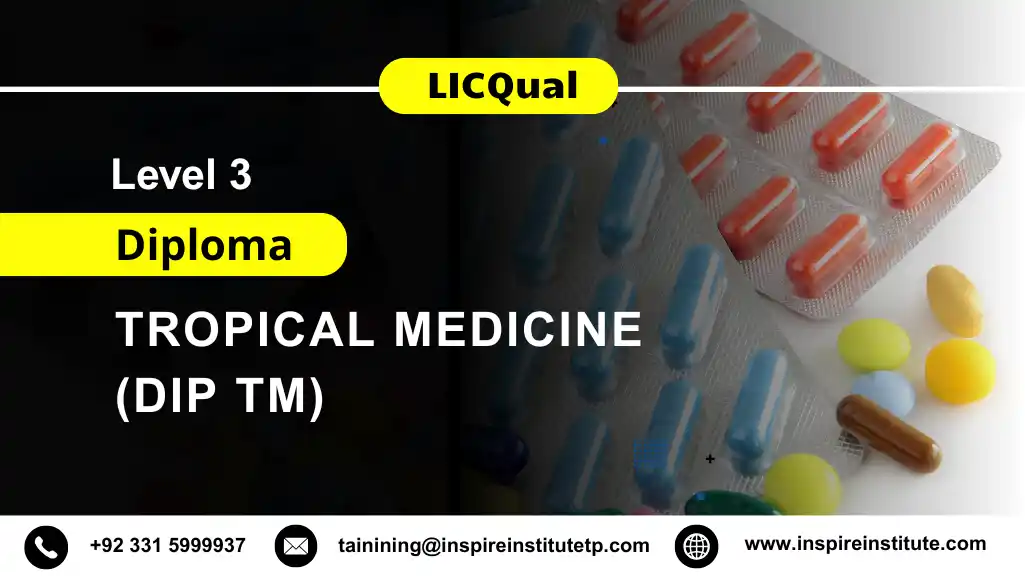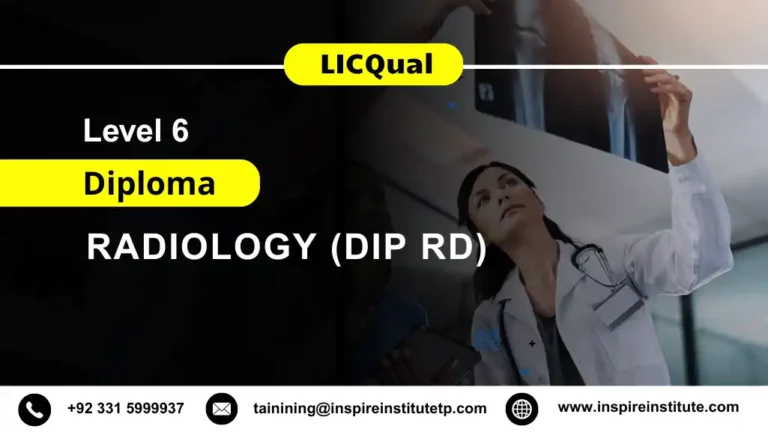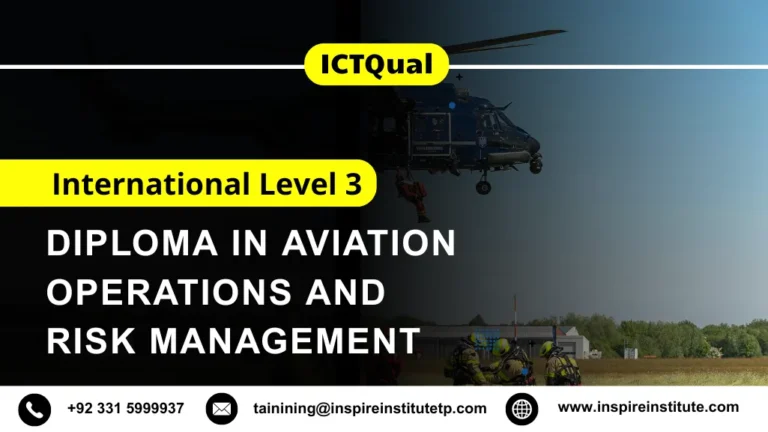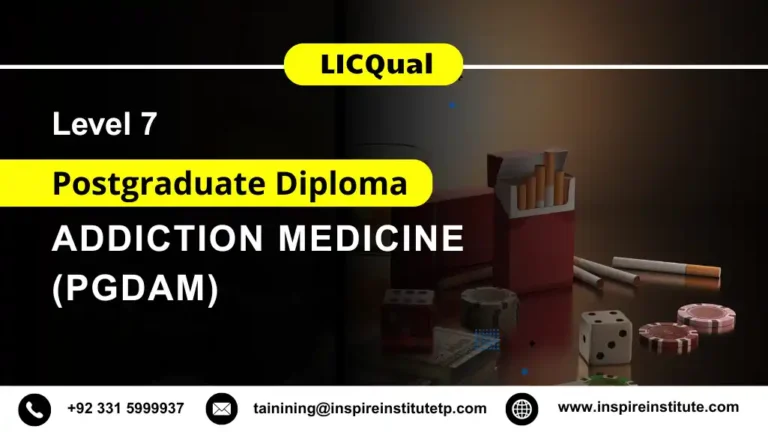LICQual Level 3 Diploma in Tropical Medicine (Dip TM)
The LICQual Level 3 Diploma in Tropical Medicine (Dip TM) is a UK-accredited programme designed for healthcare professionals, medical students, and practitioners who wish to specialize in the diagnosis, management, and prevention of tropical diseases. With millions of people worldwide affected by infectious and parasitic diseases, this qualification equips learners with the essential knowledge and practical skills to respond effectively to health challenges in tropical and subtropical regions.
This tropical medicine course offers a strong foundation in key areas including malaria, dengue, tuberculosis, HIV, parasitic infections, and other communicable diseases prevalent in tropical climates. By studying the LICQual Level 3 Diploma in Tropical Medicine (Dip TM), learners gain a comprehensive understanding of disease transmission, prevention strategies, public health interventions, and clinical treatment approaches that are globally recognized and highly relevant to modern healthcare.
The scope of this diploma extends beyond theory, emphasizing practical applications such as outbreak response, travel medicine, and infection control in community and hospital settings. Learners develop competence in diagnosing tropical diseases, interpreting laboratory results, and applying evidence-based treatments, ensuring they are prepared to meet the demands of both local and international healthcare environments.
One of the key strengths of the LICQual Level 3 Diploma in Tropical Medicine is its flexible, assignment-based learning structure. This format allows medical professionals, nurses, and allied health workers to balance their academic advancement with professional responsibilities. It is particularly valuable for individuals seeking a qualification that combines academic excellence with real-world healthcare relevance.
Graduates of this Dip TM qualification benefit from enhanced career prospects in hospitals, public health organizations, NGOs, research institutions, and international aid programs. The diploma not only validates advanced knowledge in tropical medicine but also provides global recognition that strengthens employability across a wide range of healthcare and humanitarian roles.
Ultimately, the LICQual Level 3 Diploma in Tropical Medicine (Dip TM) empowers learners to contribute to global health security by improving disease prevention, patient outcomes, and community well-being. With its focus on specialized medical training, ethical practice, and professional development, this qualification prepares healthcare professionals to make a meaningful impact in the fight against tropical and infectious diseases worldwide.
Why Choose this Qualification
The LICQual Level 3 Diploma in Tropical Medicine (Dip TM) is a specialized qualification designed to equip learners with the essential knowledge and skills required to address health challenges in tropical and subtropical regions. Tropical medicine is a vital field of study that focuses on the prevention, diagnosis, and management of infectious, parasitic, and vector-borne diseases. Choosing this diploma strengthens your professional expertise while preparing you for impactful roles in global healthcare and public health.
Key Reasons to Choose this Qualification
Comprehensive Understanding of Tropical Medicine
- Gain a strong foundation in infectious and parasitic diseases prevalent in tropical regions.
- Study the epidemiology, diagnosis, and management of malaria, dengue, tuberculosis, and other tropical illnesses.
- Learn preventive strategies including vector control, vaccination programs, and travel medicine.
- Understand the role of tropical medicine in strengthening global health security.
Practical Skills for Real-World Healthcare
- Develop applied skills for diagnosing and managing tropical and infectious diseases.
- Learn to interpret laboratory findings related to parasitic and communicable diseases.
- Acquire knowledge of outbreak investigation and response strategies.
- Apply clinical reasoning and evidence-based approaches to patient care in tropical settings.
Career-Ready Qualification
- Enhance employability with specialized expertise in tropical medicine and infectious disease control.
- Prepare for roles in hospitals, clinics, research institutions, NGOs, and humanitarian health organizations.
- Build a strong academic and professional foundation for advanced studies in medicine or public health.
- Gain credibility through an internationally recognized healthcare qualification.
Strong Focus on Global and Community Health
- Understand the impact of tropical diseases on vulnerable populations worldwide.
- Learn how to design and implement public health interventions in resource-limited settings.
- Develop communication and cultural awareness skills for working with diverse communities.
- Gain the ability to contribute to global initiatives on epidemic and pandemic prevention.
Internationally Recognized Qualification
- Earn a UK-accredited diploma awarded by LICQual, a respected international awarding body.
- Open global career opportunities in medical, research, and humanitarian sectors.
- Demonstrate your competence to employers, peers, and professional networks.
- Use this diploma as a stepping stone toward advanced healthcare and public health certifications.
Flexible and Structured Learning
- Benefit from a structured yet flexible assignment-based assessment system.
- Study at your own pace while balancing professional and personal responsibilities.
- Access tailored study resources and materials focused on tropical and infectious diseases.
- Progress smoothly through a curriculum designed for practical and academic growth.
Ethical and Professional Development
- Learn ethical practices in handling patients with infectious diseases.
- Understand the importance of safeguarding, patient confidentiality, and healthcare rights.
- Develop decision-making and leadership skills for complex health situations.
- Gain the professional competence needed for global healthcare roles.
Contribution to Global Health and Disease Control
- Play a direct role in reducing the burden of tropical and infectious diseases.
- Support humanitarian efforts in combating outbreaks and epidemics.
- Contribute to community health improvements in underserved regions.
- Build a career that combines professional growth with social responsibility.
The LICQual Level 3 Diploma in Tropical Medicine (Dip TM) goes beyond academic learning; it is a pathway to becoming a skilled healthcare professional in one of the most impactful areas of medicine. With its blend of theoretical knowledge, practical skills, global recognition, and ethical training, this diploma prepares learners to tackle some of the world’s most pressing health challenges. By choosing this qualification, you are investing in a career that not only advances your professional development but also contributes to the well-being of communities worldwide.
Course Overview
LICQual UK Awarding Body
Average Completion Time:
4-12 Months
Study Units: 6 Units
Evidence & Assignment Based
Mandatory Units
Who Should Take This Course
The LICQual Level 3 Diploma in Tropical Medicine (Dip TM) is a specialized qualification designed for individuals passionate about global healthcare who aspire to build strong expertise in managing tropical and infectious diseases. Tropical medicine is one of the most important fields in modern healthcare, requiring both advanced knowledge and practical application to address health challenges in tropical and subtropical regions. This diploma equips learners with the essential skills and expertise needed to work in hospitals, community health, NGOs, and international healthcare organizations, making it suitable for a wide range of learners.
This Course is Suitable For
Aspiring Global Healthcare Professionals
- Build a strong understanding of infectious, parasitic, and vector-borne diseases.
- Learn to identify, manage, and prevent tropical illnesses such as malaria, dengue, and tuberculosis.
- Develop skills in epidemiology, disease monitoring, and outbreak control.
- Gain confidence in applying tropical medicine knowledge in diverse healthcare environments.
Nursing and Healthcare Assistants
- Enhance knowledge in patient care related to tropical and communicable diseases.
- Improve practical skills in handling medical emergencies linked to infectious diseases.
- Strengthen techniques in patient monitoring and community healthcare delivery.
- Acquire internationally recognized skills to progress in healthcare careers.
Medical Students and Early Career Practitioners
- Use this diploma as a foundation for further studies in medicine, public health, or epidemiology.
- Gain early exposure to tropical medicine practices, ethics, and international standards.
- Build competence in applying evidence-based approaches to disease prevention and treatment.
- Develop analytical and decision-making skills through case-based learning.
Allied Health Professionals
- Strengthen medical knowledge to support multidisciplinary healthcare teams.
- Learn preventive and curative approaches for communicable and neglected tropical diseases.
- Improve service delivery through applied tropical medicine principles.
- Gain additional qualifications that add value to your healthcare profession.
Community Health Workers and Caregivers
- Acquire essential skills to support communities affected by tropical diseases.
- Learn to recognize early symptoms of infectious and vector-borne illnesses.
- Develop preventive healthcare practices to promote healthier communities.
- Enhance ability to educate families and local populations on disease prevention.
Individuals Seeking a Career Change into Healthcare
- Begin a professional journey in healthcare with a recognized international qualification.
- Gain specialized knowledge in tropical medicine without prior medical background.
- Acquire transferable skills applicable in hospitals, NGOs, and global health projects.
- Build confidence to progress into higher-level healthcare or public health education.
International Learners Aiming for Global Healthcare Careers
- Earn a UK-accredited diploma that enhances global employability.
- Gain skills and knowledge aligned with international healthcare standards.
- Strengthen your professional profile for roles in hospitals, clinics, and humanitarian organizations abroad.
- Open pathways for higher education and advanced medical or public health studies.
Volunteers and NGO Workers in Health and Humanitarian Programs
- Develop expertise to contribute effectively to health and welfare projects in tropical regions.
- Learn the essentials of tropical medicine relevant to fieldwork and global outreach.
- Improve ability to support epidemic response and healthcare interventions in underserved areas.
- Gain confidence in making a meaningful impact in international health development.
The LICQual Level 3 Diploma in Tropical Medicine (Dip TM) is ideal for anyone committed to tackling global health challenges and improving healthcare outcomes in tropical and resource-limited regions. Whether you are an aspiring healthcare professional, an experienced practitioner, or someone seeking a transition into the global medical field, this qualification provides the foundation, skills, and international recognition needed to excel in tropical medicine. By choosing this course, learners prepare themselves for professional growth while making a lasting contribution to global healthcare and disease control.
Course Benefits
The LICQual Level 3 Diploma in Tropical Medicine (Dip TM) provides significant benefits for individuals seeking to develop expertise in the prevention, diagnosis, and management of tropical diseases. By combining essential theoretical knowledge with real-world applications, this diploma prepares learners to address global health challenges such as malaria, dengue, tuberculosis, parasitic infections, and emerging tropical illnesses. Designed as a flexible, assignment-based programme, it ensures academic excellence while promoting professional growth in today’s evolving healthcare environment.
Key Benefits of the Course:
- Specialist Knowledge: Gain a comprehensive understanding of tropical diseases, including their epidemiology, pathology, and modes of transmission. Learners explore tropical virology, parasitology, vector control, and public health strategies. The course also emphasizes preventive medicine, ethical practice, and evidence-based approaches, equipping learners to make informed and effective medical decisions in tropical healthcare settings.
- Practical Application: Develop hands-on skills in diagnosing and managing tropical diseases, recognizing clinical signs, and implementing timely interventions. Learners build competence in laboratory diagnostics, outbreak management, and emergency care within hospitals, clinics, and field environments. The programme ensures graduates can effectively translate theoretical knowledge into practical tropical medicine practices.
- Recognised Qualification: Earn a UK-accredited diploma that validates advanced knowledge in tropical medicine and strengthens professional credibility. This recognition ensures alignment with international health standards, making the qualification valuable for careers in hospitals, NGOs, global health organizations, humanitarian projects, and research institutions worldwide.
- Flexible Learning Pathway: Benefit from an assignment-based study model designed to support learners in balancing professional duties and academic goals. This flexibility makes the LICQual Level 3 Diploma in Tropical Medicine (Dip TM) ideal for healthcare workers, medical students, public health professionals, and career changers seeking a structured yet accessible learning programme.
- Evidence-Based Training: Explore current guidelines and research on tropical medicine, including vector-borne disease prevention, global health security, and travel medicine. The course highlights vaccination, disease surveillance, and intervention strategies to ensure learners adopt safe, effective, and scientifically grounded practices in tropical healthcare delivery.
- Career Development: Enhance career opportunities across hospitals, international aid agencies, community health centers, and humanitarian organizations. The diploma opens pathways into roles in tropical disease management, public health, medical research, and international health services, while also providing a foundation for advanced academic study in medicine and global health.
- Enhanced Global Health Impact: Contribute to improving health outcomes in tropical and resource-limited regions through early diagnosis, effective treatment, and preventive strategies. Learners gain the skills to support communities, manage outbreaks, and strengthen global health initiatives that protect vulnerable populations.
- Professional Growth: Strengthen medical knowledge, research ability, and communication skills essential for working with diverse communities and international healthcare teams. The programme also fosters ethical practice, cultural sensitivity, and collaboration, preparing learners to excel in global and tropical healthcare delivery.
The LICQual Level 3 Diploma in Tropical Medicine (Dip TM) equips learners with essential expertise, practical skills, and a UK-recognised qualification. It empowers healthcare professionals and aspiring practitioners to address tropical health challenges, contribute to public health initiatives, and advance their careers in the rewarding and impactful field of tropical medicine.
Eligibility Criteria
The LICQual Level 3 Diploma in Tropical Medicine (Dip TM) is a UK-accredited programme designed for aspiring healthcare professionals, medical students, nurses, NGO workers, and public health practitioners who wish to develop a strong foundation in the diagnosis, treatment, and prevention of tropical diseases. This assignment-based qualification combines essential theoretical knowledge with practical applications, making it ideal for those seeking to specialize in tropical medicine and global health. By meeting the entry requirements, learners ensure they are prepared to succeed in the programme and apply their knowledge effectively in hospitals, clinics, humanitarian projects, and international health organizations.
Educational Background:
Applicants should hold a recognised healthcare or science-related qualification such as a diploma in healthcare practice, nursing, biomedical science, or an equivalent qualification. Candidates with Level 2 or Level 3 qualifications in healthcare, biology, public health, or clinical science may also be considered. Equivalent international qualifications will be assessed on a case-by-case basis to ensure they meet the suitability standards for the programme.
Professional Experience:
Previous experience in tropical medicine, global health, or general healthcare is beneficial but not mandatory. A minimum of one year of healthcare, caregiving, or community health experience is recommended. Applicants with exposure to infectious diseases, public health projects, or clinical assistance will find the course particularly valuable, though motivated learners without direct experience are also encouraged to apply.
Age Requirement:
Learners must be at least 18 years of age at the time of enrolment, ensuring they possess the maturity, responsibility, and commitment required for training in tropical medicine. This requirement guarantees that candidates can engage with both the academic and applied elements of the qualification effectively.
Language Proficiency:
As the programme is delivered in English, learners should demonstrate strong reading, writing, and communication skills. A minimum IELTS score of 6.0 or an equivalent qualification is recommended for non-native English speakers. This ensures learners can complete assignments, engage with course resources, and communicate effectively in professional and academic healthcare contexts.
Technical Requirements:
Applicants should have access to a computer or laptop with a reliable internet connection. Basic IT skills are required to navigate online learning platforms, conduct research, and submit assignments. Familiarity with digital study tools, word processing, and accessing online academic resources will support a more effective learning experience.
Required Documents:
Applicants are required to submit a valid ID or passport, proof of educational qualifications, and evidence of any healthcare or related professional experience (if applicable). International candidates presenting qualifications obtained outside the UK may be asked to provide additional documentation for verification to ensure compliance with academic entry standards.
The Qualification Process
LICQual Level 3 Diploma in Tropical Medicine (Dip TM) follows a structured pathway to ensure learners gain comprehensive knowledge, practical skills, and professional competence in community oral healthcare.
Step 1: Self-Assessment
Learners review the entry requirements to confirm eligibility. Candidates with a background in dentistry, oral health, or public health are encouraged to apply.
Step 2: Registration
Complete the registration process by submitting required documents such as proof of qualifications, a valid ID, and payment of enrollment fees.
Step 3: Induction
An induction session is conducted to:
- Verify learner eligibility and documentation.
- Introduce study materials, learning outcomes, and assessment procedures.
Step 4: Learning and Evidence Submission
Learners complete assignments, case studies, and practical exercises demonstrating competence in public health dentistry, community oral health assessment, preventive strategies, and program planning.
Step 5: Feedback and Revision
Assessors review submitted evidence and provide constructive feedback. Learners can revise and resubmit work to meet all required standards.
Step 6: Competence Validation
Final submissions are evaluated to confirm that learners have met all theoretical and practical learning outcomes.
Step 7: Internal Quality Assurance (IQA)
The IQA team reviews the assessment process to ensure accuracy, fairness, and compliance with international standards.
Step 8: External Verification (EQA)
External verifiers validate the authenticity and quality of learner achievements.
Step 9: Certification
Upon successful verification, learners are awarded LICQual Level 3 Diploma in Tropical Medicine (Dip TM) , demonstrating advanced proficiency in community oral healthcare and preparing them for professional growth in dental public health, preventive dentistry, and healthcare policy.







